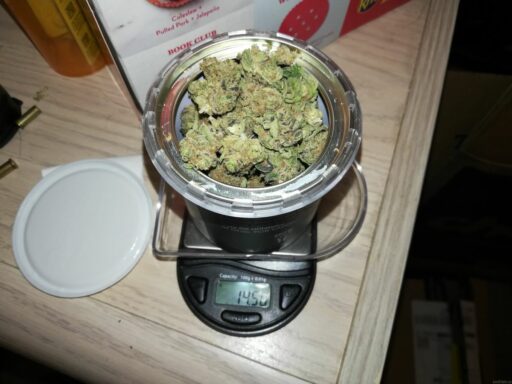Understanding Ohio’s Medical Marijuana Laws is essential for individuals seeking to participate in the state’s program, whether as patients, caregivers, or dispensary operators. These laws cover a range of topics, including patient eligibility, the application process, caregiver responsibilities, dispensary regulations, and legal protections. This article aims to provide a comprehensive overview of Ohio’s medical marijuana regulations to ensure compliance, uphold patient rights, and contribute to the safe and effective use of medical cannabis.
Key Takeaways
- Ohio requires qualifying medical conditions for patient eligibility and a thorough application process for medical marijuana cards.
- Registered caregivers in Ohio must undergo background checks and are legally responsible for assisting patients with medical marijuana.
- Ohio cannabis dispensaries are subject to strict regulations including licensing, security measures, and product safety protocols.
- Patients and caregivers in Ohio are afforded legal protections against prosecution when complying with state medical marijuana laws.
- Understanding Ohio’s medical marijuana regulations is crucial for safe access, legal compliance, and informed decision-making in the program.
Eligibility and Registration for Ohio’s Medical Marijuana Program

Qualifying Conditions for Patients
In Ohio, the medical marijuana program recognizes a variety of health conditions as eligible for treatment. As of 2024, 25 illnesses are officially qualified for medical marijuana use under the state’s legislation. The list of conditions is dynamic, with the potential for expansion as the Ohio State Medical Board reviews new petitions each year.
- Cancer
- Epilepsy or another seizure disorder
- Fibromyalgia
- Glaucoma
- Hepatitis C
- Inflammatory bowel disease
- Multiple sclerosis
- Pain that is either chronic and severe or intractable
- Parkinson’s disease
- Positive status for HIV/AIDS
- Post-traumatic stress disorder
- Sickle cell anemia
- Spinal cord disease or injury
- Tourette’s syndrome
- Traumatic brain injury
- Ulcerative colitis
The process for adding new conditions involves a petition system open annually, allowing Ohioans to advocate for the inclusion of additional medical conditions. This ensures that the program remains responsive to the evolving needs of patients.
If your condition is not currently on the list, there is a pathway to request consideration for medical marijuana treatment through the state’s control program or by contacting organizations like My MMJ Doctor.
The Application and Card Issuance Process
To participate in Ohio’s Medical Marijuana Program, patients must navigate a straightforward application process. Firstly, patients are required to obtain a physician’s recommendation confirming their qualifying condition. Following this, the patient can apply for a medical marijuana card through the Ohio Medical Marijuana Control Program (OMMCP).
The steps to acquire a medical marijuana card include:
- Filling out the necessary details in the application form.
- Undergoing an evaluation by a certified medical marijuana (MMJ) doctor.
- Receiving approval and the official recommendation via email.
It is important to note that the Division of Cannabis Control is considering the elimination of state patient and caregiver fees, which could further streamline the process for applicants.
Once approved, patients receive their medical marijuana card, granting them access to legally purchase and possess medical cannabis from licensed dispensaries in Ohio. Caregivers, who must pass background checks and register with the state, can assist patients in obtaining and administering their medication.
Caregiver Roles and Legal Requirements
In Ohio, caregivers play a crucial role in the medical marijuana program, providing essential support to patients who may not be able to obtain or administer their medication independently. Caregivers are required to register with the state and undergo a background check to ensure the safety and compliance of the program.
Caregivers are permitted to assist multiple patients; however, there are limits to the number of patients a caregiver can support. They must also adhere to the same possession limits as patients, and they are only allowed to obtain medical marijuana from licensed dispensaries.
It is vital for caregivers to understand their responsibilities and the legal requirements set forth by Ohio’s regulations. This knowledge not only helps in maintaining compliance but also in safeguarding the well-being of the patients they serve.
Here are some key points for caregivers in Ohio:
- Obtain a physician’s recommendation for each patient.
- Apply for caregiver registration through the Ohio Medical Marijuana Control Program.
- Undergo a mandatory background check.
- Follow strict guidelines for obtaining and administering medical marijuana.
Understanding and following these guidelines is essential for caregivers to provide effective support while staying within the legal framework of Ohio’s medical marijuana policy.
Compliance and Operations of Ohio Cannabis Dispensaries

Licensing and Regulatory Compliance
In Ohio, cannabis dispensaries are bound by stringent regulations to maintain compliance and ensure patient safety. Dispensaries must secure a license from the Ohio Medical Marijuana Control Program, which involves a thorough application process. The Ohio Marijuana License Application Process is outlined by regulations, with provisional licenses expected to be issued by a specific date. For instance, according to guidance published by the Department of Commerce (DCC), provisional licenses will be issued by September 7, 2024, with up to 50 dispensary licenses anticipated.
To uphold the integrity of the medical marijuana program, dispensaries are required to maintain detailed records of inventory and sales transactions. This facilitates regulatory oversight and is a critical component in safeguarding the well-being of patients. Dispensaries must also adhere to the regulations set forth by the Ohio Medical Marijuana Control Program, which encompass licensing requirements, security measures, product testing procedures, and packaging and labeling standards.
Dispensaries play a crucial role in the medical marijuana program by ensuring compliance with regulations and focusing on patient safety. By doing so, they contribute significantly to the program’s effectiveness and the protection of patients.
Security Protocols and Product Safety
Ensuring the safety of medical marijuana products and the security of dispensaries is paramount in Ohio. Dispensaries are required to implement stringent security measures to protect against theft and ensure the integrity of their products. These protocols include comprehensive surveillance systems, secure storage solutions, and restricted access to cannabis storage areas.
Ohio dispensaries are committed to maximizing safety measures, which encompass rigorous sanitation practices and frequent disinfection of surfaces. Optimal ventilation systems are in place to mitigate the risk of contamination, and when necessary, social distancing and mask policies are enforced to maintain high safety standards.
The testing of marijuana products is a core component to product safety. Ohio mandates that all medical marijuana products undergo thorough testing by licensed laboratories. This ensures that patients receive products that are not only effective but also free from harmful contaminants.
By adhering to these protocols, dispensaries not only foster trust among patients but also demonstrate a commitment to providing a secure and safe environment for accessing medical cannabis.
Packaging, Labeling, and Testing Standards
In Ohio, the medical marijuana products must adhere to strict packaging, labeling, and testing standards to ensure patient safety and product integrity. All products are required to be tested for potency and contaminants before they can be sold at dispensaries. Packaging must be child-resistant and clearly labeled with the product’s contents, dosage, and the dispensary’s information.
- Packaging must be tamper-evident and resealable if not intended for single use.
- Labels must include a list of active ingredients, the product type, and the batch number.
- Testing protocols include screening for pesticides, solvents, and microbial contaminants.
The state’s rigorous testing standards are in place to protect patients from harmful substances and to ensure the efficacy of the medical marijuana they receive. These measures are critical for maintaining the trust and safety of the program’s participants.
Legal Framework and Protections in Ohio’s Medical Marijuana Policy

Federal vs. State Law Conflicts
Navigating the terrain of Ohio’s medical marijuana landscape reveals a critical tension between state and federal regulations. While medical marijuana is legal at the state level in Ohio, it remains illegal federally. This clash between state and federal law introduces complications, impacting cardholders in various aspects, including:
- Federal jobs and housing assistance barred due to federal marijuana prohibition
- Gun purchases prohibited regardless of medical card status
- Workplace drug testing still allowed despite medical status
- Medical justification not accepted as defense in interstate travel
The legal landscape for medical marijuana users in Ohio is fraught with complexities that can affect various aspects of life.
It is essential for Ohio medical marijuana cardholders to be aware of these conflicts and consider the potential implications for their personal and professional lives.
For instance, testing positive for marijuana may impact Workers Compensation claims, and unemployment benefits may be disputed or denied. Job licensing can be revoked in safety-sensitive fields like commercial transport. These challenges may vary based on individual circumstances and are subject to evolving legal interpretations.
Legal Protections for Patients and Caregivers
In Ohio, registered patients and caregivers are afforded legal protections against prosecution for the possession and use of medical marijuana, as long as they adhere to the state’s regulations. These protections are a cornerstone of the medical marijuana program, ensuring that individuals who comply with the law can manage their health without fear of legal repercussions.
While some exceptions exist, job protections for medical marijuana users in Ohio are limited. It’s important for patients and caregivers to understand their workplace’s policies and to engage with HR departments to navigate potential employment challenges.
The recent update to the registration fee for medical marijuana cards is a significant development for patients and caregivers. As of March 4, the fee has been reduced to a nominal amount, making the program more accessible:
- Title: Medical marijuana patient, caregiver registration fee drops to one cent
- Snippet: Those looking to acquire a medical marijuana card will now only be charged $0.01 (one cent) beginning Monday, March 4, according to the Division of Cannabis …
Understanding these laws is not only about compliance but also about upholding the rights of patients and contributing to the safe and effective use of medical marijuana in Ohio.
Implications for Employment and Family Law
In Ohio, the intersection of medical marijuana use with employment and family law presents a complex landscape. Employers are not obliged to accommodate medical marijuana use, which can lead to challenges for patients in the workplace. For instance, testing positive for marijuana may affect Workers Compensation claims, and job licensing could be at risk in certain fields.
Family law also grapples with the implications of medical marijuana. In custody disputes, a medical marijuana card might influence decisions, as there is often a bias against cannabis use around children. Proactive measures are essential to minimize legal intervention or loss of parental rights.
- Child custody and visitation considerations
- Impact on qualification for foster or adoptive parents
- Workers Compensation and unemployment benefit disputes
While these issues are subject to change with evolving legal interpretations, understanding them is crucial for navigating the legal system as a medical marijuana patient in Ohio.
Patient Guidance for Navigating Ohio Medical Marijuana Dispensaries

Selecting the Right Dispensary
When embarking on the medical marijuana journey in Ohio, selecting the right dispensary is a crucial step. It’s important to consider a variety of factors to ensure that the dispensary you choose aligns with your health needs and personal preferences.
- Location: Proximity to your home or work can influence your choice, especially if regular visits are required.
- Product Availability: A dispensary’s inventory should cater to your specific medical conditions and preferred consumption methods.
- Staff Expertise: Knowledgeable staff can provide valuable guidance and answer your questions accurately.
By visiting dispensaries in person, you can get a feel for the atmosphere and the level of patient care provided. This hands-on approach allows you to interact with staff and assess the quality of service firsthand.
Additionally, it’s beneficial to join loyalty programs and follow dispensaries on social media for exclusive promotions. Visiting during off-peak hours can also lead to a more personalized experience. Keep track of different strains and consumption methods to find what works best for you, and don’t hesitate to ask staff for recommendations on new products.
Understanding Product Varieties and Uses
Ohio’s medical marijuana program offers a range of product types to suit various patient needs and preferences. Understanding the differences between these products is crucial for effective treatment.
Patients can choose from several forms of medical marijuana, including:
- Flower: The traditional bud form used for smoking or vaporizing.
- Concentrates: Potent products such as oils, waxes, and shatters.
- Edibles: Food items infused with cannabis, offering a longer-lasting effect.
- Tinctures: Liquid extracts typically administered under the tongue.
- Topicals: Creams and balms applied directly to the skin for localized relief.
Each product type has its own onset time and duration of effects, which are important considerations when selecting the right option for your condition. For instance, inhalation methods like smoking or vaporizing provide quick relief, while edibles take longer to take effect but offer prolonged benefits.
When exploring the variety of products available, always consult with a licensed healthcare provider to determine the most appropriate form and dosage for your specific medical condition.
Ensuring Quality and Safety in Product Selection
When selecting medical marijuana products, patients must prioritize quality and safety to ensure effective treatment. Dispensaries in Ohio are committed to providing safe access to medical cannabis, with a focus on rigorous sanitation practices and product integrity.
To assist patients in making informed choices, here is a list of safety measures implemented by Ohio dispensaries:
- Frequent disinfection of surfaces
- Optimal ventilation systems
- Adherence to social distancing guidelines
- Controlled occupancy limits
- Mandatory mask policies (when required)
Patients should also consider the dispensary’s reputation and the expertise of its staff. Researching online reviews and leveraging educational resources, such as the Ohio Medical Marijuana Control Program website and dispensary seminars, can be invaluable.
By ensuring that these safety measures are in place, patients can confidently select products that are not only effective but also safe for consumption.
Driving and Public Safety Concerns for Medical Marijuana Users in Ohio

Legal Considerations for Impaired Driving
In Ohio, medical marijuana patients must navigate the complexities of impaired driving laws with caution. Ohio laws do not define clear standards or thresholds for marijuana impairment, leaving patients in a gray area. It’s crucial for patients to be aware that the legal system may not differentiate between recreational and medicinal use when it comes to driving under the influence.
While the therapeutic use of marijuana is recognized, patients should exercise extra vigilance to avoid legal complications related to driving.
Understanding the nuances of Ohio’s DUI/OVI statutes is essential, especially since the state’s laws remain stringent despite the legalization of medical marijuana. Here are some key points to consider:
- Legal Thresholds: The absence of defined legal thresholds for THC impairment.
- Residual Traces: The potential for DUID convictions based on residual traces of THC.
- Future Developments: The possibility of evolving standards as THC testing improves.
Navigating the Absence of Legal Impairment Thresholds
In Ohio, the absence of legal impairment thresholds for marijuana creates a complex landscape for medical marijuana patients who drive. While the state recognizes the medicinal use of cannabis, the lack of clear standards can lead to uncertainty and legal challenges.
- Legal Thresholds: Ohio laws do not define clear standards or thresholds for determining marijuana impairment while driving.
- Residual Traces and DUID Convictions: Patients may face Driving Under the Influence of Drugs (DUID) convictions based on residual traces of THC, despite following medical treatment plans.
It’s crucial for patients to be aware of the potential legal implications of driving after using medical marijuana, even when adhering to prescribed treatment.
As testing for THC improves, there is hope that measurable intoxication limits will be established, providing clearer guidance for patients and law enforcement alike. Until then, patients must exercise caution and consider the legal risks associated with driving under the influence of medical marijuana.
Best Practices for Responsible Use
When participating in Ohio’s Medical Marijuana Program, it is crucial to prioritize responsible use to ensure safety and compliance with state regulations. Always store your medical marijuana products securely and out of reach of children and pets to prevent accidental ingestion. Additionally, be mindful of the potential impact on others and avoid using medical marijuana in public spaces or around individuals who may be adversely affected.
- Be discreet about marijuana use around children, ensuring it doesn’t impact their well-being.
- Abstain from use during times of allotted custody or visitation with your children.
- Choose medical marijuana products with low THC content to mitigate any potential intoxicating effects.
- Offer third-party monitoring solutions if concerns about drug use arise during legal proceedings.
- Emphasize commitment to physician-advised treatment plans and highlight responsible use of medical marijuana.
Responsible use also extends to understanding and respecting the legal boundaries of the program. Ensure that you are fully aware of the dos and don’ts, such as not attempting to purchase cannabis without valid documentation and not consuming products on-site unless permitted. By adhering to these guidelines, you contribute to the integrity and sustainability of the medical marijuana program in Ohio.
Conclusion
In summary, Ohio’s medical marijuana regulations form a comprehensive framework designed to ensure patient safety, program integrity, and legal compliance. From patient eligibility and caregiver responsibilities to dispensary operations and legal protections, understanding these regulations is essential for anyone involved in the state’s medical marijuana program. While navigating the complexities of Ohio’s medical marijuana landscape can be challenging, especially with the juxtaposition of federal and state laws, informed patients and participants can effectively manage their responsibilities and rights. As the program continues to evolve, staying abreast of updates and changes to the regulations will be crucial for maintaining compliance and supporting the program’s successful implementation.
Frequently Asked Questions
What conditions qualify a patient for medical marijuana in Ohio?
Patients in Ohio must have a qualifying medical condition such as cancer or chronic pain to be eligible for medical marijuana.
How does one apply for a medical marijuana card in Ohio?
Patients must obtain a physician’s recommendation and then apply for a medical marijuana card through the Ohio Medical Marijuana Control Program.
What are the responsibilities of a caregiver in Ohio’s medical marijuana program?
Caregivers are responsible for assisting registered patients in obtaining and administering medical marijuana, and they must undergo background checks and registration.
What regulations must Ohio cannabis dispensaries comply with?
Dispensaries in Ohio must adhere to regulations covering licensing, security measures, product testing procedures, and packaging and labeling standards.
Are there legal protections for medical marijuana patients and caregivers in Ohio?
Yes, registered patients and caregivers receive legal protections against prosecution for possessing and using medical marijuana within the confines of Ohio law.
How does the conflict between federal and state law affect medical marijuana users in Ohio?
While medical marijuana is legal at the state level in Ohio, it remains illegal federally, which can lead to complications for cardholders in various aspects of their lives.





